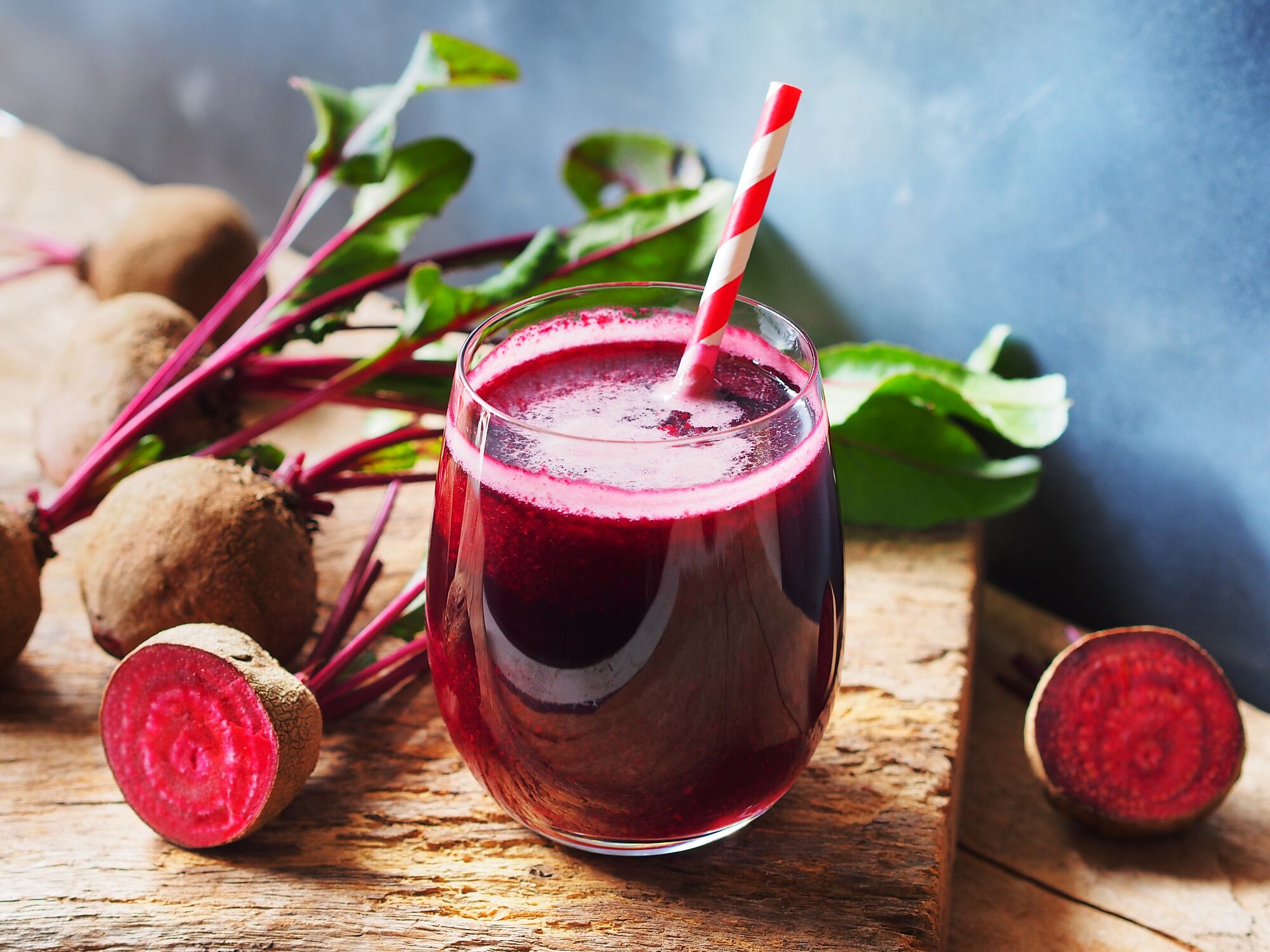Beetroot is rich in inorganic nitrate and many oral bacteria play a role in turning nitrate to nitric oxide, which helps to regulate blood vessels and neuro-transmission. Bring into this equation the fact that older people tend to have lower nitric oxide production - which is associated with poorer vascular and cognitive health - and there is a potential link between beetroot consumption and these healthy ageing parameters.
The purpose of the current placebo-controlled, cross-over dietary intervention study was to determine which co-occurring clusters of bacteria in the oral microbiome are sensitive to nitrate intake, which co-occurring bacteria correlate with cognitive and physiological traits, and which nitrate-sensitive bacteria represent key biomarkers, and thus probiotic targets, for enhancing cardiovascular and cognitive health.
The researchers, from the University of Exeter, used a sample of 26 healthy older people who participated in two ten-day supplementation periods: one with nitrate-rich beetroot juice (around 750 mg NO3−/d)) and another with nitrate-free placebo juice, which they drank twice a day.
Throughout the study, the participants also took part in comprehensive assessments of physiological and cognitive function, as well as muscle and brain metabolism.
The oral microbiome compositions were compared between conditions using non-metric multidimensional scaling (NMDS) ordination based on Bray-Curtis dissimilarity, coupled with t-tests and Benjamini-Hochberg false discovery rate correction.
This analysis revealed a shift in the oral microbial community between the two groups. Notably, the nitrate supplementation increased the abundances of 10 species, while decreasing the abundances of 14 others.
The researchers ran tests to identify clusters of oral bacteria that tend to thrive together in similar conditions and they note a "remarkable consistency" in the clustering of oral microbiota irrespective of age and ethnicity of the subject.
The cluster Prevotella-Veillonella was reduced after nitrate supplementation, including a decrease of Clostridium difficile which is known to infect the bowel and cause diarrhoea. Prevotella-Veillonella has been associated with proteolytic metabolism and an early inflammatory state with a dysbiotic prognosis as well as being predominant in smokers, and positively associated with periodontitis and pneumonia in older people.
Whereas, Neisseria-Haemophilus and Streptococcus-Rothia clusters thrived in the high nitrate group. A Neisseria-Haemophilus dominated oral microbiome has been associated with periodontal health, younger age, lower BMI, and abstinence from smoking.
The researchers also found that systolic blood pressure dropped on average by five points (mmHg) after nitrate supplementation.
The results also indicate that the intervention was linked to an improved sustained attention (reduced number of errors in the Rapid Visual Information Processing test), and that information processing speed (in Decision-Reaction test) was inversely correlated with the nitrate-sensitive Neisseria-Haemophilus bacterial cluster (MM5).
The report therefore concludes this intervention may have potential to help delay the progression of cardiovascular and cognitive decline.
"We are really excited about these findings, which have important implications for healthy ageing," said lead author Professor Anni Vanhatalo, of the University of Exeter.
"Previous studies have compared the oral bacteria of young and older people, and healthy people compared to those with diseases, but ours is the first to test nitrate-rich diet in this way.
"Our findings suggest that adding nitrate-rich foods to the diet - in this case via beetroot juice - for just ten days can substantially alter the oral microbiome (mix of bacteria) for the better. Maintaining this healthy oral microbiome in the long term might slow down the negative vascular and cognitive changes associated with ageing."
Professor Vanhatalo stressed that more research is needed to confirm the findings and see whether similar effects are found in other groups. Much research has been conducted into the benefits of a healthy gut microbiome, but far less is known about the oral microbial community, which plays a crucial role in "activating" the nitrate from a vegetable-rich diet.
"Our participants were healthy, active older people with generally good blood pressure... Dietary nitrate reduced their blood pressure on average, and we are keen to find out whether the same would happen in other age groups and among people in poorer health.
"We are working with colleagues in the University of Exeter Medical School to investigate interactions between the oral bacteria and cognition to better understand the how diet could be used to delay cognitive decline in older age."
Neisseria, Haemophilus and Rothia are among bacteria that dominate the oral microbiomes of vegans, while the omnivorous diet favours Prevotella and Streptococcus. This leads the researchers to suggest that the greater Neisseria/Prevotella ratio reported in vegans compared to omnivores is likely due to differences in dietary nitrate intake.
Source: Redox Biology
Vanhatalo. A., L'Heureux. J. E., et al
"Network analysis of nitrate-sensitive oral microbiome reveals interactions with cognitive function and cardiovascular health across dietary interventions"


